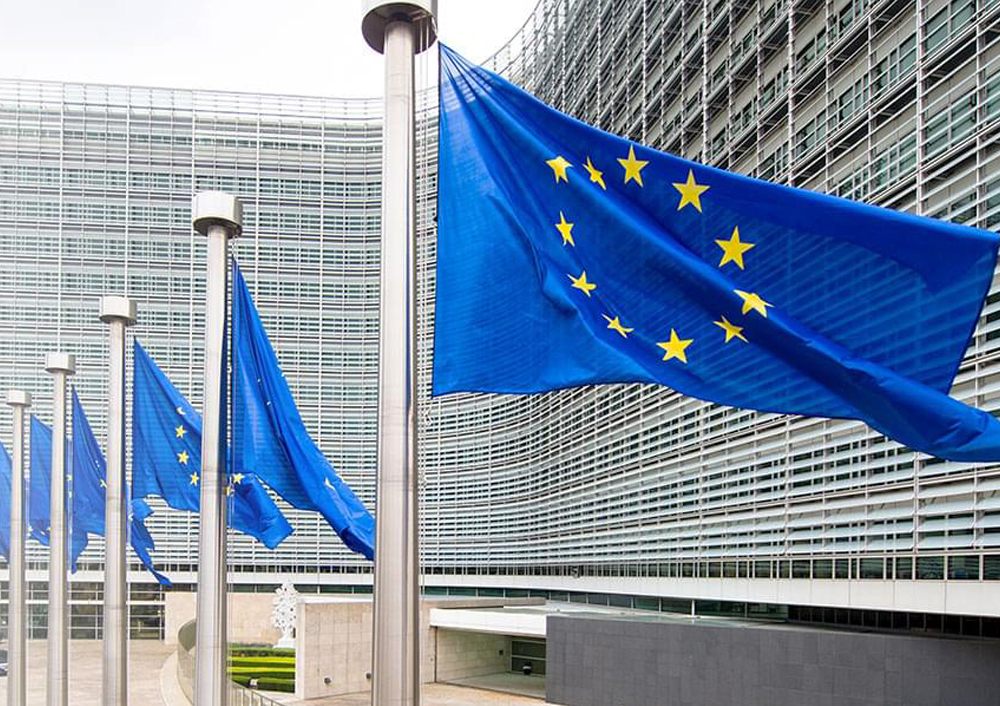LIFE ECODIGESTION 2.0,
A POTENTIAL AND PROMISING SOLUTION FOR AFRICA’S WASTE MANAGEMENT AND THE
REDUCTION OF GLOBAL GREENHOUSE GAS EMISSIONS
Life Ecodigestion 2.0, A Potential And Promising Solution For Africa's Waste Management And The Reduction Of Global Greenhouse Gas Emissions

Lola Bordás, from the Finnova Foundation, together with Diana Morant, Spanish Minister of Science and Innovation, and the group of winning girls from the Abecé school in Gandía, receiving the Girls4Tech challenge award in the European Commission's DG RTD initiative. At the launch of the Horizon Programme, Valencia.
By: Begoña Martinavarro Serratosa, London.
- On 24 January 2022 took place the presentation of programmes as Girls For Tech challenges. Innovation in women key's that boost STEM carreer in in girls and young women wiht entrepreneurs spiritin the field of technology, who want to make the leap to Europe through the accelerator Startup Europe Accelerator, rewarding startups through the Women StartUp Europe Awards. The winners of the 2022 Finnova challenges in the Girls4Tech Startup Europe Awards edition won thanks to a project consisting of a mobile application inspired by the European project LIFE Ecodigestion 2.0.
- LIFE ECOdigestion 2.0 European project provides a remarkable system that manages organic waste in anaerobic digesters of Wastewater Treatment Plant (WWTP) to maximize the production of biogas on demand as renewable energy
- The overall success of these projects in Europe calls for an opportunity to build European funds to expand this project to Africa, where 19 of the world's 50 biggest dumpsites are located and where 90% of waste generated is disposed of at uncontrolled dumpsites and landfills
- LIFE ECOdigestion 2.0 would decrease risk of disease, flooding and environmental pollution that come as a result of indiscriminate waste dumping as well as the detrimental impacts of GHG emissions for human health in Africa, while also creating new jobs and business opportunities for the continent.
Greenhouse Gas (GHG) Emissions and Biodegradable Waste
Most greenhouse gas (GHG) emissions come from energy production. For that reason, renewable energies must play a fundamental role in solving the climate change problem. If these technologies become an economic and technically-viable alternative to conventional fossil energy resources, a large-scale reduction of GHG emissions would be achieved. On the other hand, millions of tonnes of waste are produced each year by the agriculture and food sectors, and most of this is potentially biodegradable. The co-digestion of these wastes with waste water treatment plant (WWTP) sludge is an alternative treatment with important possibilities, since its use transforms waste into by-products and biogas, a renewable energy.
About LIFE Ecodigestion 2.0
The LIFE ECOdigestion 2.0 project includes an automatic control system to manage organic waste in anaerobic digesters of Wastewater Treatment Plant (WWTP) to maximize the production of biogas on demand as renewable energy. The pilot project has a duration of four years (2020-2024) and has a budget of more than 970,000 euros. It's led by Global Omnium Medioambiente (Spain) and has as partners the Finnova Foundation (Belgium) and Águas do Centro Litoral (Portugal).
LIFE Ecodigestion 2.0, a road to attaining the SDGs
The main goal of this project is the scaling up of the technology to produce biogas on demand with WWTP sludge, using agro-food waste and slurry as a co-substrate using a technology for the automatic control of waste dosage in anaerobic digesters of WWTPs and, consequently, maximising biogas production and waste treatment capacity.
This system allows transforming organic waste from the HORECA sector (such as leftovers) into biogas in each WWTP, which then can be used to power industries and fuel vehicles. Therefore, the production of biogas to cover energy demand whilst reducing the amount of waste in landfill not only contributes to compliance with the European Landfill Directive but also adheres to the Sustainable Development Goals (SDGs).
LIFE ECOdigestion 2.0 initiative strategy supports important advancements in several SDGs including SDG 6, "Guaranteeing the availability and sustainable management of water and sanitation for all"; SDG 7, "Ensuring access to affordable, reliable, sustainable and modern energy for all"; SDG 9, "Developing resilient infrastructures, promoting inclusive and sustainable industrialization and encouraging innovation"; and SDG 13, "Take urgent action to combat climate change and its impacts", among others.
It is calculated that the project will valorise 27 375 t/year of agri-food waste and 102 200 t/year of manure by changing their destination from incineration, agriculture, compost and landfill disposal to co-digestion. This implies: avoiding the emission of GHG, about 7 900 and 16 442 CO2eq in agri-food and manure co-digestion respectively and avoiding total annual methane production with agri-food waste of 2 729 471 Nm3 and 951 400 Nm3 with manure, which means 14 571 MWh and 7 540 MWh, respectively.
Moreover, with this technology four qualified full-time jobs as specialised technicians are consolidated and one created during the project, promoting SDG 8 by creating full and productive employment .
Regarding the EU-level impact, the implementation of the tool in all WWTPs with anaerobic processes (5 477 WWTPs) would imply an energy production of around 58 000 GWh/year. In addition to this, an annual reduction of GHG of 66.2 Mt CO2 and 17.1 t NOx, and of gases that promote acid rain in 23.7 t SO2 would be achieved.
Opportunity for Africa
According to the World Health Organisation (WHO), waste collection services in most African countries are inadequate, with the average waste collection rate in Africa being only 55%. Similarly, more than 90% of waste generated in Africa is disposed of at uncontrolled dumpsites and landfills, where 19 of the world's 50 biggest dumpsites are located.
The current waste management practices in Africa have detrimental social, economic, and environmental consequences, and therefore the cost of inaction is momentous. These include increased risk of disease, flooding and environmental pollution due to indiscriminate waste dumping and detrimental impacts of GHG emissions for human health. If the 2030 Agenda for sustainable development is to be achieved, sustainable waste management approaches must be an environmental and public health imperative deserving political priority.
According to the WHO, diverting waste away from dumpsites and landfills towards reuse, recycling and recovery, could inject an additional US$8 billion every year into the African economy, and create significant socio-economic opportunities for the continent.
Social and technological innovations, developed through projects like LIFE ECOdigestion 2.0, that recognize the opportunity that waste provides as a secondary resource and divert waste away from dumpsites and landfills towards reuse, recycling and recovery can improve the livelihoods of thousands, while also creating new jobs and business opportunities for the continent. Bringing waste under control in Africa and unlocking the opportunities that "waste" provides as a "resource" will require immediate intervention by government, business and civil society, but most importantly financing agencies such as the European Union. Expanding ECOdigestion 2.0 to Africa will create a positive path towards reaching the SDGs in a continent thatorg


